Yemen conflict: PM Bahah escapes Aden hotel attack
- Published
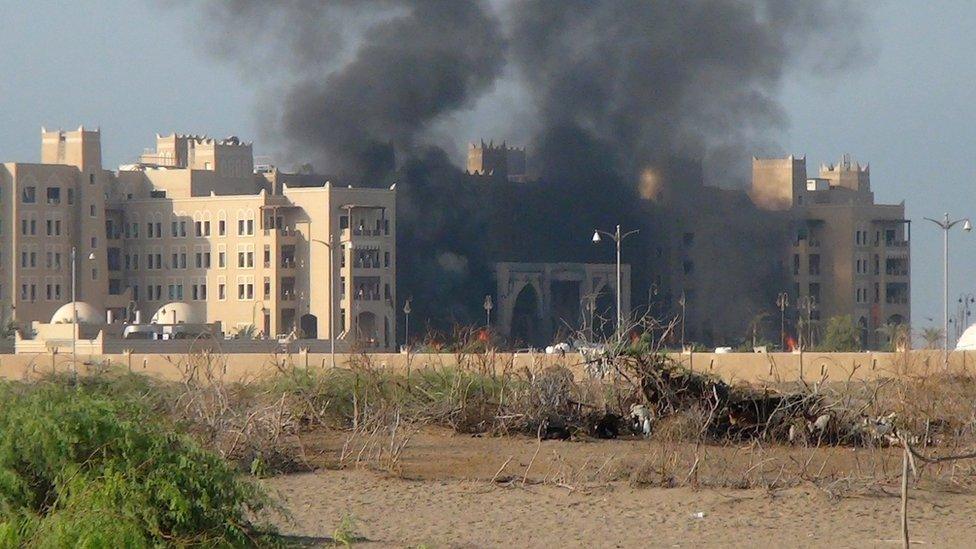
Members of the Yemeni government were staying at the Qasr hotel when it came under attack
Attacks in Aden on a hotel used by Yemen's prime minister and two military installations have killed 15 Saudi-led coalition troops and pro-government fighters, Emirati state media say.
Explosions rocked the Qasr hotel, the headquarters of the UAE's forces in the city and a camp early on Tuesday.
Prime Minister Khaled Bahah and members of his government escaped unharmed.
The UAE blamed rocket-fire from Houthi rebels, but Islamic State (IS) said suicide bombers were responsible.
Jihadist militants have reportedly been seen on the streets of Aden since southern militiamen backed by coalition forces drove the Houthis out of the city in July before advancing northwards and creating a security vacuum.
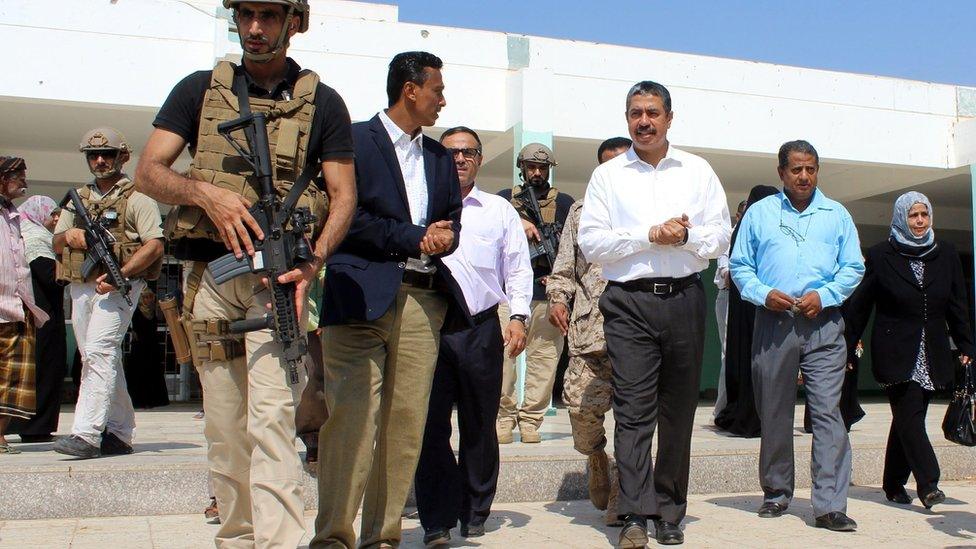
Prime Minister Khaled Bahah was unharmed, a government spokesman said
Yemeni government spokesman Rajeh Badi told the Associated Press that the Qasr hotel in the al-Buraiqa district, the UAE's military headquarters in the nearby palace of Sheikh Farid al-Awlaqi, and a camp where Emirati troops are housed in the al-Shaab district were all hit by rockets fired from outside the city limits.
The prime minister and his ministers were safe and unhurt, he said.
The official Saudi Press Agency also cited a coalition statement blaming rocket fire. Coalition forces had "responded to the source of fire and destroyed the vehicles" used to launch them, it said.
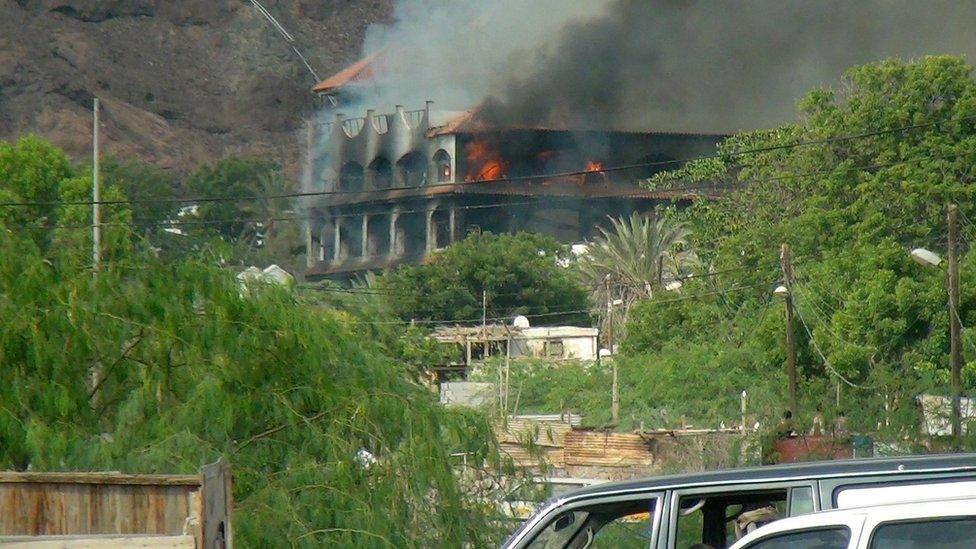
The UAE, which backs Yemen's government, blamed the attacks on the Houthi rebel movement
But a statement posted online by a newly formed IS affiliate, Aden-Abyan Province, asserted that it had carried out four suicide attacks, two of them targeting the Qasr hotel.
The local newspaper Aden al-Ghad had earlier cited Yemeni security sources as saying the explosions were the result of car bombings.
The sources said gunmen armed with automatic weapons and mortars had fought guards stationed at the main gate of the Qasr Hotel, before driving an explosives-packed vehicle into the compound and blowing it up.
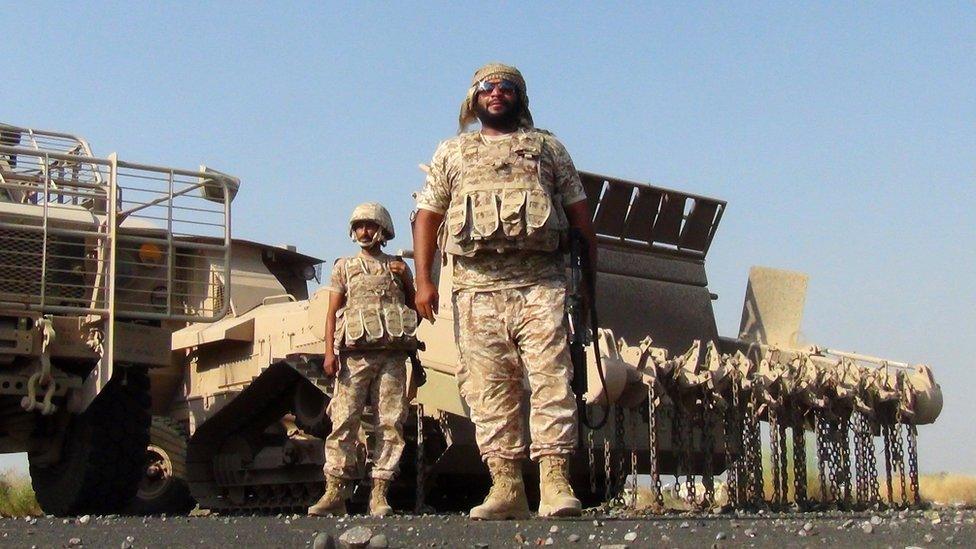
The UAE is a key member of the Saudi-led coalition battling Yemen's Houthi rebels
The attacks on the other two locations also saw gunmen attack before detonating car bombs, the sources added.
Before IS claimed responsibility, the UAE's minister of state for foreign affairs had blamed the attacks on the Houthis and allied army units loyal to former President Ali Abdullah Saleh, who he claimed were determined to destroy Yemen.
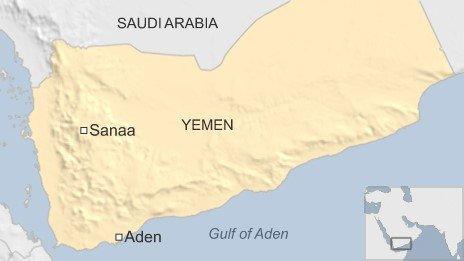
"The situation on the ground shows that they are waging a losing battle and that their role has been diminished to retreating on the ground and to try to inflict damage with mines, ambushes and rockets," Anwar Gargash wrote on Twitter.
The UN says almost 4,900 people, including 2,355 civilians, have been killed in coalition air strikes and fighting on the ground in Yemen over the past six months.

Why is there fighting in Yemen?
Northern Shia Muslim rebels known as Houthis, backed by forces loyal to Yemen's ex-president, took over parts of Yemen, including the capital, Sanaa, and forced the government into exile in March
The rebels accused the government of corruption and of planning to marginalise their heartland within a proposed federal system
Forces loyal to the government and southern militias regained control of Aden in July, aided by Saudi-led coalition air strikes and troops
